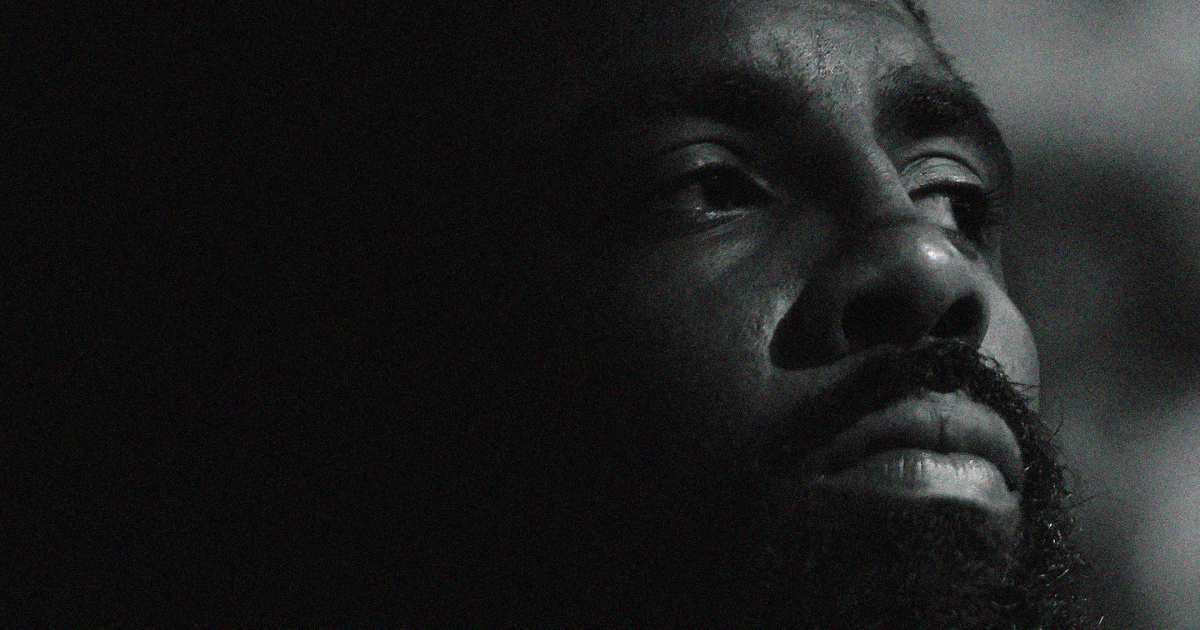Thursday night, after years of causing controversy, the Brooklyn Nets’ Kyrie Irving issued a rare apology. It wasn’t about his history of endorsing anti-vaccine misinformation or for the time he shared a video containing a rant from noted conspiracy theorist Alex Jones.
No, Irving’s apology — a block of text posted alongside a black square on Instagram — stemmed from a more recent controversy, in which he was accused of promoting antisemitism after he tweeted a link to the Amazon page for “Hebrews to Negroes: Wake Up Black America.” It’s a 2018 documentary that, among other things, claims that Jewish people worship Satan, insists that Jews controlled the Atlantic slave trade and currently control the media, and denies that the Holocaust ever happened.
Are we really supposed to believe that it’s a genuine change of heart and not a response to a pressure campaign from his employers?
After days of defending his choice to share the film with his nearly 5 million followers and refusing to denounce antisemitism unequivocally, Irving finally offered up a sop “[t]o All Jewish families and Communities that are hurt and affected from my post.” In his apology, he noted that he stands against antisemitism and wishes that his original post about “Hebrews to Negroes” had been more upfront about what he does, and doesn’t, find valuable about the Black Hebrew Israelite doctrine outlined within the film.
Like most Instagram apologies, Irving’s felt a bit perfunctory and performative, not least because it came the same day he was suspended indefinitely by the Nets over the controversy. Are we really supposed to believe that Irving underwent such a massive amount of personal growth in the span of hours? Are we really supposed to believe that it’s a genuine change of heart and not a response to a pressure campaign from his employers? And given how limited in scope the apology is — expressing regret for giving off the appearance of antisemitism while only vaguely gesturing to the specifics of why people might think that he’s antisemitic — are we really supposed to believe he has a nuanced understanding of why people are angry?
Notably, even the Nets aren’t impressed by the effort. While General Manager Sean Marks acknowledged the apology as a step in the right direction, he said it wasn’t enough to get Irving reinstated at this time. (To his credit, Irving does appear to have written the statement all by himself, as it lacks the polished tone of a crisis-response publicist’s work.)
It’s easy to point out all the flaws in Irving’s attempt at an apology. But, hollow as his statement may have been, I don’t think that he is the source of the problem here. In tossing off an Instagram apology in response to finally facing the consequences for his actions, Irving is merely taking part in a widespread ritual. It’s one where apologies aren’t a sign of genuine remorse or personal growth but an obligatory act of penance that’s performed in response to a public callout. Far from showing a deep understanding of one’s wrongdoings, it’s more about a desire to get things back to normal.
Follow @NBCNewsTHINK starting at 8 p.m. EST on Nov. 8 as we highlight what our contributors are THINKing as election results roll in.
Time and again, we’ve seen public figures dole out apologies like Irving’s — ones that insist that the person meant nothing wrong, that they were merely misunderstood, that they’re sorry for the negative feelings they inspired but truly are a good person at heart. Every time we watch the cycle play out, it feels more and more meaningless. Indeed, the public apology has been devalued.
If you genuinely care about apologies — as I certainly do — it’s hard not to feel a bit despondent. But perhaps it’s our fixation on them, or at least apology statements, that’s the problem here. They individualize an act of wrongdoing, boiling it down to one bad person who must make amends. But the current issue with Kyrie Irving isn’t about Kyrie Irving alone. It’s about a system of celebrity, and especially sports celebrity, that refuses to hold its stars accountable until they finally cross some arbitrary red line. It’s a system that is more concerned with keeping up appearances than actually investing in healthy communities and cultures of care.
It’s so frustrating that he has been allowed to remain largely unchecked up until this point, even as he’s spread increasingly disturbing conspiracy theories over the years. Watching his trajectory, it’s not hard to see how he wound up espousing (or at least appearing to endorse) antisemitic beliefs. If the NBA is truly invested in curbing antisemitism and promoting respect for all people, then why did it take this long to address Irving’s slide into harmful conspiracies? Why was there no serious attempt at intervention before he finally managed to trigger the ritual of suspension and perfunctory apology?
In the wake of his suspension, Irving is required to meet with Jewish community leaders and participate in counseling before he can return to games. It’s a nice enough gesture, but it’s hard not to feel like it’s too little, too late. If the NBA had been invested in Irving as a person and not just a symbol of their franchise, they might have worked to get him help, to expose him to the flaws within his worldview, long before he got to the point of promoting a film that peddles Holocaust denial. And if they’d actually done that, well — who knows, they might have even spared us from having to read yet another celebrity apology on Instagram.
Share your story or advertise with us: Whatsapp: +2347068606071 Email: info@newspotng.com










